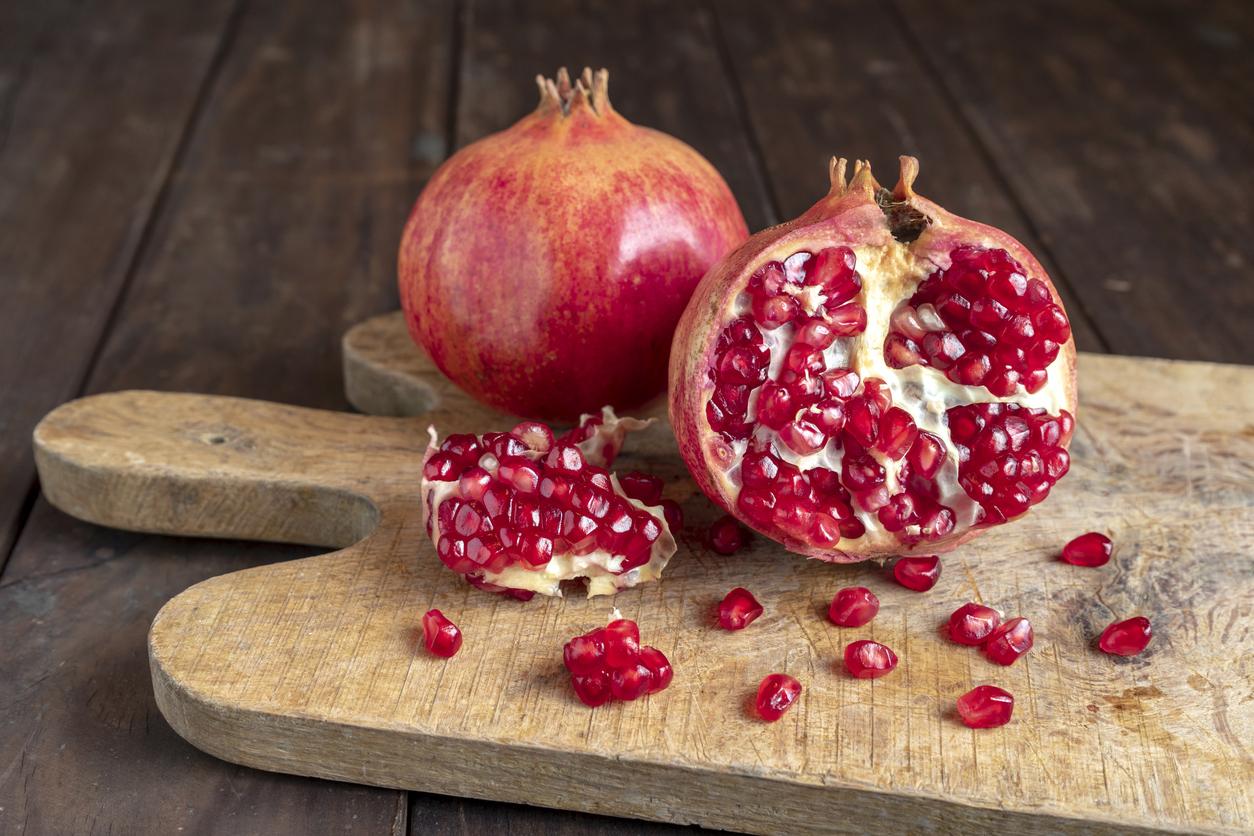Ellagic acid, an antioxidant found in pomegranate, may slow and potentially reverse the pathological manifestations of fatty liver disease.

- Ellagic acid is a polyphenolic compound found in pomegranates, raspberries, strawberries, and grapes.
- Thanks to its antioxidant properties, the latter activates the NrF2 pathway to reduce oxidative stress in order to protect the liver in cases of non-alcoholic fatty liver disease (NAFLD).
- It also “suppresses Nf-kB and MAPK pathways, thereby attenuating inflammation during” fatty liver disease.
Fatty liver disease, also called nonalcoholic fatty liver disease (NAFLD), is a pathology associated with metabolic syndrome (abdominal obesity, high cholesterol, diabetes, high blood pressure, etc.). According to health insuranceit is characterized by an accumulation of fat in the liver, outside of any excessive alcohol consumption. Its prevalence and cases of deaths related to NAFLD have continued to increase in recent years. Problem: there is currently no treatment for the long-term management of fatty liver disease. “However, dietary interventions have been studied for the treatment of NASH, including several polyphenolic compounds. Ellagic acid is one such polyphenolic compound,” said researchers from Edith Cowan University (Australia).
Pomegranates, raspberries, grapes… Ellagic acid is present in a variety of fruits
The latter is an antioxidant naturally present in a variety of fruits, such as pomegranates, raspberries, strawberries and grapes, as well as in oilseeds, such as pistachios or pecans. According to the team, ellagic acid is known to alleviate chronic diseases, such as metabolic syndrome, cardiovascular disease, hypertension and neurodegenerative diseases. “Nutraceutical foods rich in ellagic acid undergo initial hydrolysis to release ellagic acid in the stomach and small intestine. The proposed mechanism of action of ellagic acid extends beyond its initial therapeutic potential, as it is further broken down by the gut microbiota into urolithin. Ellagic acid and urolithin have been shown to attenuate oxidative stress, inflammation, and fibrosis, associated with NAFLD/NASH,” scientists have clarified.

Fatty Liver Disease: Ellagic Acid Reduces Oxidative Stress and Inflammation to Protect the Liver
Although progress has been made in understanding the pharmacological and biological activity of ellagic acid and its implication in fatty liver disease, they have yet to be fully elucidated. Therefore, in a recent study published in the journal Antioxidantsthe authors analyzed the effects of ellagic acid. As part of their work, they summarized the currently available literature elucidating the therapeutic potential of this polyphenolic compound in NAFLD/NASH.
According to the results, ellagic acid exerts its hepatoprotective properties mainly by scavenging free radicals, modulating cytokine production, and regulating lipid metabolism. It also activates the NrF2 pathway to reduce oxidative stress to protect the liver. This compound “also suppresses the Nf-kB and MAPK pathways, thereby attenuating inflammation during NAFLD/NASH. Evidence also shows that ellagic acid can reduce both triglyceride and cholesterol levels.” Given the involvement of lipid metabolism, oxidative stress, inflammation, and insulin resistance in the pathogenesis of NAFLD, the researchers suggest that ellagic acid may represent a potential dietary intervention for this pathology, not only to limit but potentially reverse the damage caused by fatty liver disease.
















